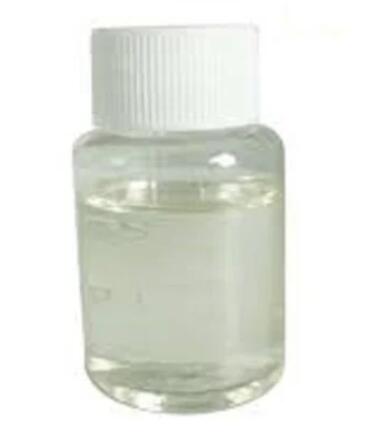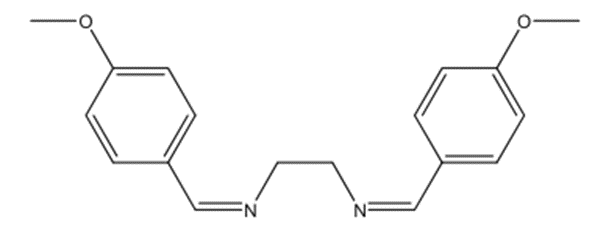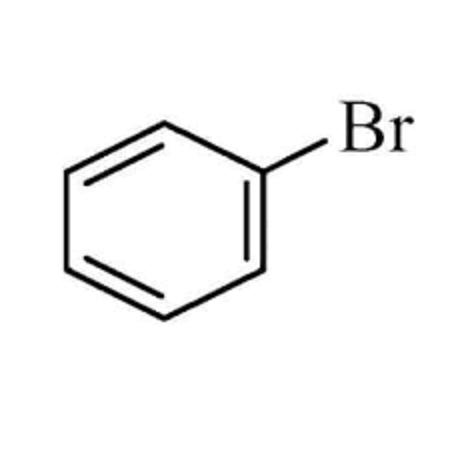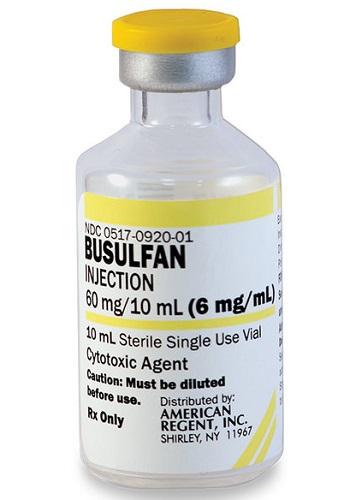What is p-Anisaldehyde?
General description
P-methoxybenzaldehyde is a member of the class of benzaldehydes consisting of benzaldehyde itself carrying a methoxy substituent at position 4. It has a role as an insect repellent, a human urinary metabolite, a plant metabolite and a bacterial metabolite.
p-Anisaldehyde (4-methoxybenzenaldehyde, C8H8O2) is a naturally occurring fragrant phenolic compound that is soluble in acetone. The compound occurs in many plant species including anise, Pimpinella anisum L.; cumin, Cuminum cyminum L.; fennel, Foeniculum vulgare Miller; and garlic, Allium sativum L.. p-Anisaldehyde affects arthropod pests in different ways. For example, it deters larval lone startick, Amblyomma americanum (L.), movement and sublethal concentrations halt reproduction by gravid females.

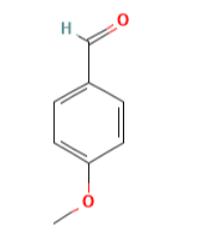
Figure 1 the molecular formula of p-Anisaldehyde
Usually it is white or light yellow solid, low solubility in water, soluble in organic solvents such as ethanol and acetone, active bromine content is about 54%, stable in dry state, easy to absorb moisture, partially hydrolyzed after moisture absorption; slight or very little pungent odor. Easily deliquescent, with a weak pungent odor of bleaching powder, easily soluble in most organic solvents such as chloroform, ethanol, acetone, benzene and concentrated sulfuric acid. It is easy to decompose in strong acid or alkali. Corrosion to stainless steel, severe corrosion to carbon steel.Aldehydic fragrances are high-end new fragrances developed because this type of compound has a floral and fruity aroma that is superior to the parent carbonyl compound, the aroma is moist, and the fragrance is long-lasting, as long as a small amount is added, the natural feeling of the fragrance can be significantly increased.[3]
Application and pharmacokinetics
Para-methoxybenzaldehyde is not only an important intermediate for organic preparation, but also a raw material for the preparation of drugs and cosmetics. Use it as an intermediate to produce antimicrobial drug amoxicillin and prepare porphyrin photosensitizer. The pmethoxybenzaldehyde produced by Japan's Tanabe Pharmaceutical Company is used to prepare the pharmaceutical product Diltiazem Hydrochloride. It is a vasodilator, mainly used to improve angina, angina, and other diseases, and it is exported to the United States in large quantities. P-Methoxybenzaldehyde can be used as a raw material for the preparation of anti-ultraviolet cosmetics and the medicinal choleretic choleretics. Some data show that p-methoxybenzaldehyde has a significant inhibitory effect on the nucleic acid metabolism of Candida albicans, so it can be used as an additive in the treatment of some gynecological diseases.
1.p-anisaldehyde is lethal to adult horn flies, Haematobia irritansirritans (L.), exposed to droplets and volatiles, to larvae in cow manure, and to eggs .The compound is also toxic to the mushroom sciarid fly, Lycoriella ingenua (Dufour). p-Anisaldehyde is more toxic to house dust mites, Dermatophagoides farina Hughes and D. pteronyssinums (Trouessart), than the synthetic acaricides benzyl benzoate, N,N-diethyl-m-toluamide (DEET), 3-carene, and estragol. Bean weevil, Callosobruchus maculatus , and bean bruchid, Acanthoscelides obtectus (Say), adults were killed using p-anisaldehyde sprayed on legume seeds. Yellow water traps baited with p-anisaldehyde, on the other hand, increased capture of western flower thrips, Frankliniella occidentalis (Pergande), and onion thrips, Thrips tabaci Lindeman, over nonbaited trapsTraps baited with p-anisaldehyde also collected more varied carpet beetles, Anthrenus verbasci (L.), than nonbaited traps. The purpose of this study was to determine lethal and repellent effects of p-anisaldehyde on M.domestica.[2]
Some feed-through products in cattle have been tested for muscid population management, but organic compounds for such use are not commercially available. While acetone mixed into cow manure decreased M.domestica development from larvae to pupae in our study, low amounts failed to reduce numbers of pupae further,excluding the highest concentration which was effective. Doubling the low quantity of p-anisaldehyde was moderately more effective by reducing pupation at half the concentration (0.75%). Strong reduction of pupation, however , was accomplished at the 0.75% concentration by quadrupling the quantity applied. Our results show that the development of larvae was more impaired by p-anisaldehyde than pupal development to the adult stage, which was a possible artifact of the experimental approach: larvae were directly exposed to p-anisaldehyde, whereas the pupae were removed from the treated manure until adults emerge.
2.p-anisaldehyde is found to be an effective antifungal against both fl uconazole-resistant and sensitive strains of Candida. Ergosterol biosynthesis is strikingly reduced by p-anisaldehyde and its cause appears to be decreased NADPH routed through upregulation of aryl-alcohol dehydrogenases.
Synthesis
P-methoxybenzaldehyde is an important fine chemical, and its application is very wide. Using it as a raw material can develop high value-added downstream products. Although there are many production methods, it uses electrochemical oxidation of p-methyl anisole, ozone oxidation and electrochemical oxidation of anethole, p-hydroxybenzaldehyde and dimethyl sulfate for alkylation to prepare p-methoxy Mainly benzaldehyde is the development direction of p-anisaldehyde production now and in the future. The use of China's abundant natural resources as raw materials to prepare products is a route that is more in line with national conditions, and it can change the status quo that China's natural products are often exported in the form of primary products. Chinese chemical companies should also accelerate the development of high value-added products using p-anisaldehyde as raw materials. It is foreseeable that the preparation and application research and development of p-anisaldehyde products have a good prospect
The University of Science and Technology of China uses p-methoxybenzyl alcohol as raw material and polystyrene sulfonyl chloride as the carrier to prepare p-methoxybenzaldehyde through the Komblum reaction using a solid-phase method. The solid-phase method is used to prepare p-methoxybenzaldehyde, which has the advantages of simple operation, easy separation, and reusable polymer carrier. The yield of p-anisaldehyde can reach 79%. Kumar A et al. [4] used potassium permanganate to selectively oxidize aromatic alcohols into aromatic aldehydes in ionic liquids, with yields ranging from 83% to 97%. Industrially, p-methoxybenzyl alcohol is prepared by reducing p-methoxybenzaldehyde.
The preparation route with p-methoxybenzyl alcohol as raw material is as follows:[3]


Figure3 Synthesis of the intermediates of P-methoxybenzaldehyde
References
1.Shreaz S., Bhatia R. & Khan N. et al., "Exposure of Candida to p-anisaldehyde inhibits its growth and ergosterol biosynthesis," Journal of general and applied microbiology, Vol.57, No.3(2011), pp.129-136.
2
3.Wang Qingjun, Liu Fusheng, Yu Shitao: "Study on the Preparation and Application of p-Methoxybenzaldehyde", "Progress in Fine Petrochemicals" 2006, Issue 05, pp. 34-38.
4.Kumar A , Jain N ,Chauhan S .SyntheticCommunications,2004 ,34
(15):2835 ~ 2842
You may like
Related articles And Qustion
Lastest Price from p-Anisaldehyde manufacturers

US $0.00/KG2026-01-29
- CAS:
- 123-11-5
- Min. Order:
- 500KG
- Purity:
- 99%
- Supply Ability:
- 20TON
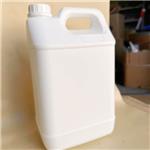
US $15.00/KG2025-06-09
- CAS:
- 123-11-5
- Min. Order:
- 1KG
- Purity:
- 99
- Supply Ability:
- 1 ton

